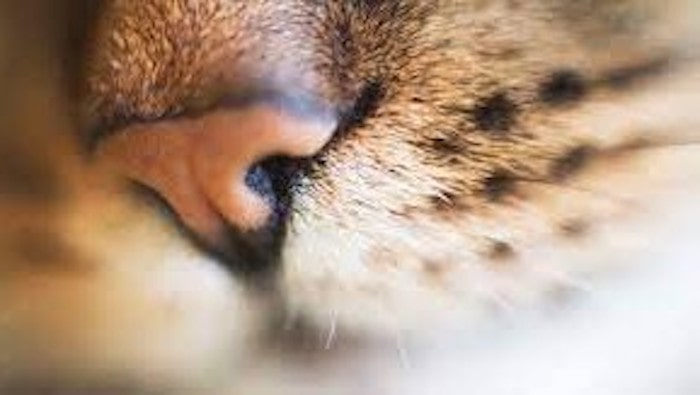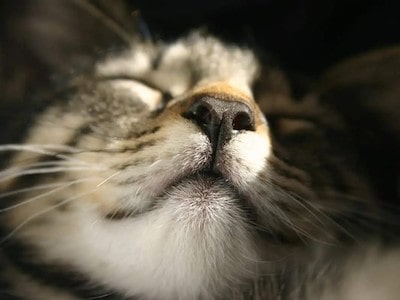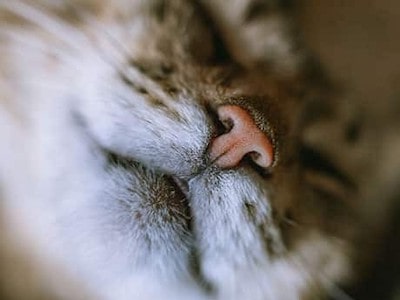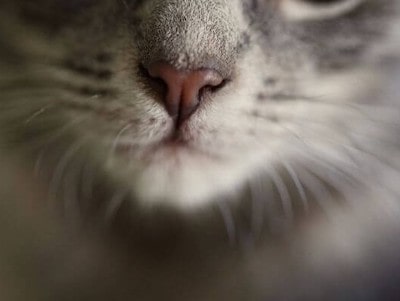If you’ve ever found yourself wondering, “Why does my cat have black boogers?” then you’ve come to the right place. It’s not uncommon for cat owners to notice dark-colored nasal discharge in their furry companions, but what causes this intriguing occurrence?
In this article, we will delve into the depths of feline health and explore the various factors that contribute to black boogers in cats. Get ready to gain a deeper understanding of your cat’s well-being as we shed light on this puzzling phenomenon.
So, let’s embark on this investigative journey and uncover the truth behind why your cat has black boogers.
What Are Black Boogers and How Do They Form in Cats
Boogers are the dried mucus that forms in the nose. They help to trap dust, dirt, bacteria, and other particles that enter the nose and prevent them from reaching the lungs.
Boogers can be clear, white, yellow, green, or brown depending on the type and amount of mucus and the presence of infection or inflammation.

Black boogers are usually caused by the presence of blood in the mucus. Blood can turn black when it dries and oxidizes.
This can happen when the blood vessels in the nose are damaged or irritated by trauma, infection, allergy, or dryness. Sometimes, black boogers can also be caused by foreign objects in the nose, such as dirt, grass seeds, or insects.
Common causes of black boogers in cats
Some of the common causes of black boogers in cats are:
- Trauma: Cats may hurt their noses by rubbing them against hard surfaces, clawing them with their claws, or engaging in animal conflicts. Black boogers may result from the nasal bleeding and scabbing caused by this. Trauma-related symptoms including edoema, redness, soreness, or discharge from the nose may become apparent.
- Infection: Cats’ noses are prone to bacterial and fungal infections that can bleed and inflame. This might happen as a result of nasal polyps, tumours, dental issues, or upper respiratory infections. Infection symptoms such sneezing, coughing, nasal discharge, foul breath, and appetite loss may become apparent.

- Allergy: Pollen, dust mites, mold, scent, and smoke are just a few of the environmental elements that cats may be sensitive to. This may irritate the nose and create sinus inflammation and swelling, which may result in bleeding and black boogers. You can experience itching, scratching, watery eyes, or skin issues as allergy symptoms.
- Dryness: Low humidity, dehydration, or the adverse effects of certain medications can all cause dry nose in cats. The nose may break, bleed, and develop black boogers as a result. Dryness may manifest as flaky skin, a dull coat, or increased thirst.
When to Worry About Black Boogers in Cats And What to Do
Black boogers in cats are not always a cause for concern. Sometimes they are just a normal part of grooming and cleaning the nose. However, if you notice any of the following signs along with black boogers in your cat’s nose, you should consult your veterinarian as soon as possible:

- Persistent or excessive bleeding from the nose
- Difficulty breathing or noisy breathing
- Nasal discharge that is foul-smelling or has pus or blood
- Facial swelling or deformity
- Weight loss or lethargy
- Fever or other signs of infection
Your veterinarian will examine your cat’s nose and may perform tests such as blood work, x-rays, or biopsy to determine the underlying cause of the black boogers.
Depending on the diagnosis, your veterinarian may prescribe medication such as antibiotics, antifungals, steroids, or antihistamines to treat the condition. In some cases, surgery may be required to remove foreign objects or tumors from the nose.
How to Prevent and Treat Black Boogers in Cats Naturally
There are some natural ways to prevent and treat black boogers in cats at home. Here are some tips:
- Keep your cat’s environment clean and free of allergens and irritants. Vacuum regularly and use air filters or humidifiers to improve air quality. Avoid using strong chemicals or fragrances around your cat.
- Provide your cat with fresh water and a balanced diet to keep them hydrated and healthy. Avoid giving your cat dairy products as they can increase mucus production.
- Gently wipe your cat’s nose with a damp cloth or cotton ball to remove any dirt or dried mucus. Do not use tissues or paper towels as they can scratch the nose.

- Apply a thin layer of petroleum jelly or coconut oil to your cat’s nose to moisturize and protect it from dryness and cracking.
- Use a saline solution or a nasal spray to flush out any debris or mucus from your cat’s nose. You can make your own saline solution by mixing 1/4 teaspoon of salt with 1 cup of warm water. Do not use human nasal sprays as they can be harmful to cats.
- Give your cat some herbal remedies such as echinacea, goldenseal, licorice root, or marshmallow root to boost their immune system and fight infection. You can add these herbs to your cat’s food or water or make a tea and administer it with a dropper. Consult your veterinarian before giving any herbs to your cat.
Tips for Keeping Your Cat’s Nose Healthy and Clean
Your cat’s nose is an important organ that helps them smell their surroundings and communicate with other cats. To keep your cat’s nose healthy and clean:
- Check your cat’s nose regularly for any signs of injury, infection, allergy, or dryness.
- Trim your cat’s nails regularly to prevent them from scratching their nose.
- Keep your cat indoors or supervise them when they go outside to prevent them from getting into fights or inhaling harmful substances.
- Avoid smoking around your cat as it can irritate their nose and lungs.
- Visit your veterinarian for regular check-ups and vaccinations to prevent diseases that can affect your cat’s nose.
FAQ
Are black boogers in cats a cause for concern?
While black boogers in cats are not always indicative of a serious issue, it is important to monitor your cat’s overall health. If the black discharge is accompanied by other symptoms like sneezing, coughing, difficulty breathing, or loss of appetite, it is advisable to consult a veterinarian for a proper diagnosis.
When should I seek veterinary care for my cat’s black boogers?
If you notice persistent black discharge, accompanying symptoms, or a change in your cat’s behavior or appetite, it is recommended to consult a veterinarian. They can conduct a thorough examination, determine the underlying cause, and provide appropriate treatment if necessary.
Can I clean my cat’s black boogers myself?
It is generally best to avoid attempting to clean your cat’s black boogers on your own, as it may cause further irritation. Instead, consult your veterinarian for proper guidance on how to safely clean your cat’s nasal discharge, if necessary.
Can allergies cause black boogers in cats?
Yes, allergies can contribute to the formation of black boogers in cats. Just like humans, cats can be allergic to various substances such as pollen, dust mites, certain foods, or even certain grooming products. Allergens can irritate the nasal passages, leading to black discharge.
Final Thoughts
In conclusion, the mystery behind why your cat has black boogers has been unveiled. We have explored various factors that can contribute to this phenomenon, including environmental pollutants, respiratory infections, allergies, and underlying health conditions.
While black boogers in cats are not always a cause for immediate concern, it is crucial to pay attention to your cat’s overall health and seek veterinary care if accompanying symptoms or changes in behavior occur.
Prevention is key, and creating a clean and dust-free environment, addressing potential allergens, and providing a balanced diet and regular veterinary care can help reduce the occurrence of black boogers in cats.
Additionally, understanding and managing stress or anxiety in your cat’s environment can contribute to their well-being.
